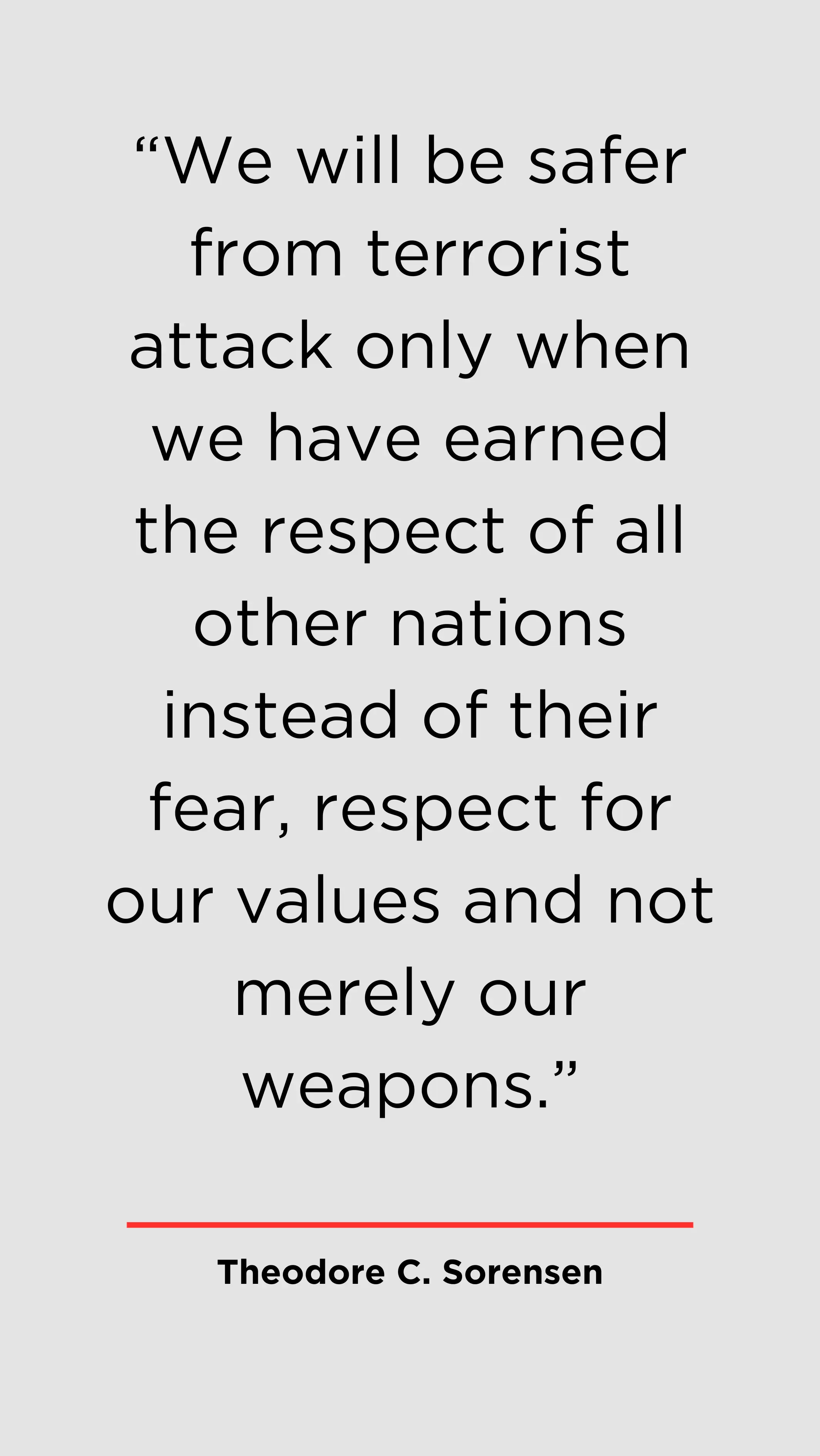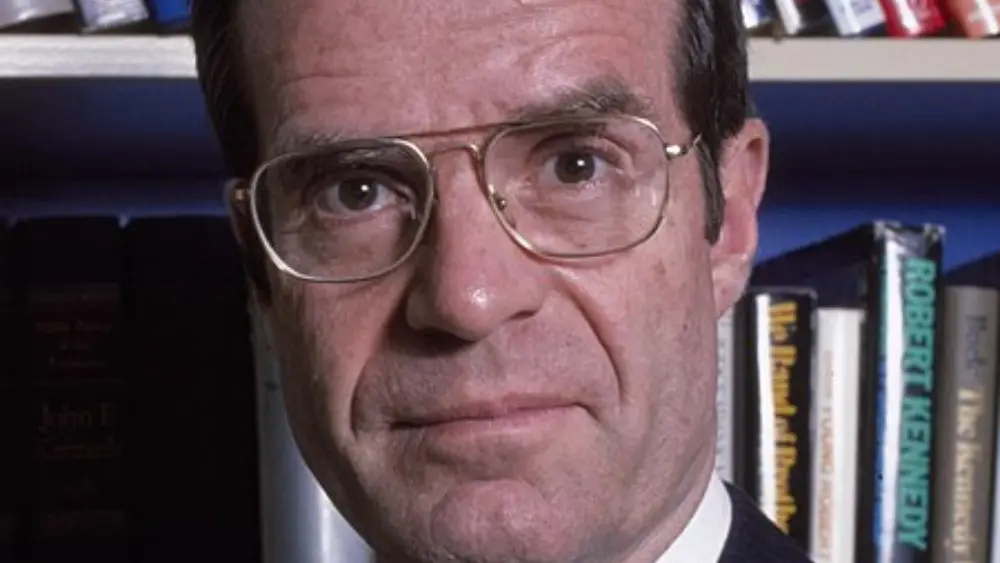Theodore C. Sorensen, often referred to as “Ted,” was a trusted advisor and speechwriter to President John F. Kennedy. Born on May 8, 1928, in Lincoln, Nebraska, Sorensen’s life was defined by his close association with one of America’s most iconic leaders and his significant contributions to shaping the Kennedy administration’s policies and speeches.
Early Life and Education
Ted Sorensen’s early life and education shaped his career as a speechwriter and advisor to an iconic American figure. From a young age, Sorensen displayed a keen intellect and a deep affinity for literature and language. These early interests served as a precursor to his future role in crafting eloquent and impactful speeches for political leaders. He studied at the University of Nebraska, refining his academic skills and nurturing a passion for public service. He later obtained a law degree from the University of Nebraska College of Law, crucial for his future leadership roles.
Ted Sorensen’s education gave him a unique mix of legal skills, linguistic talent, and a dedication to public service. These qualities were invaluable in his career as a trusted advisor to President John F. Kennedy and a celebrated speechwriter. His early education paved the way for a lifetime of profound influence in politics and government.
Theodore C. Sorensen: Entry into Politics and the Kennedy Campaign
Theodore C. Sorensen’s political debut shaped his career and American political history in a serendipitous, pivotal moment. It all began during John F. Kennedy’s 1952 Senate campaign when Sorensen’s exceptional eloquence and strategic thinking came to the fore. His innate talent for crafting persuasive and inspiring speeches quickly caught Kennedy’s attention, leading to his involvement in the campaign. Sorensen’s language skills and knack for simplifying policy were invaluable to the young, charismatic Kennedy, aiding his Senate victory. This partnership launched Sorensen into American politics, ultimately making him one of President Kennedy’s trusted advisors and speechwriters.
Theodore Sorensen’s role in the Kennedy campaign highlighted his linguistic skill, commitment to public service, and alignment with Kennedy’s vision. Their partnership was characterized by a shared commitment to eloquence, idealism, and the pursuit of a better America. During this period, Sorensen honed skills in crafting speeches and narratives, instrumental in shaping Kennedy’s iconic speeches and legacy.
Trusted Speechwriter
Ted Sorensen’s role as John F. Kennedy’s speechwriter was nothing short of pivotal. His words left a lasting impact on the Kennedy presidency and American political history. Sorensen’s wordsmithing and vision crafted historic speeches, notably Kennedy’s 1961 inaugural address, showcasing his eloquence and strategic communication. The influential phrase, “Ask not what your country can do for you; ask what you can do for your country,” is just one example of Sorensen’s genius in capturing the spirit of the Kennedy era. His ability to distill complex ideas into concise and inspirational language helped Kennedy connect with the American people and set the tone for a presidency defined by its idealism and ambition.
Sorensen’s contributions extended far beyond just the inaugural address. He played a significant role in shaping Kennedy’s speeches on civil rights, the space race, and foreign policy, among others. His expertise in crafting persuasive narratives and his knack for finding the right words at critical moments made him an invaluable asset to the Kennedy administration. Sorensen’s trusted role as Kennedy’s speechwriter solidified his place in history as a key architect of the Kennedy legacy, leaving an enduring impact on American political discourse and reminding us of the power of eloquent and visionary rhetoric in shaping the course of a nation.
Theodore C. Sorensen: The Cuban Missile Crisis
Theodore C. Sorensen’s legacy is forever linked to his vital role during the Cuban Missile Crisis in 1962. As President Kennedy’s trusted advisor, he helped craft the administration’s response to the Soviet nuclear threat in Cuba. Sorensen’s strategic brilliance and linguistic skill shone during this high-stakes confrontation. He co-authored President Kennedy’s message to the nation, skillfully balancing resolve and diplomacy. This message, along with his overall contributions, is hailed as a crisis communication masterpiece, defusing the crisis without nuclear conflict. Sorensen’s enduring legacy lies in his pivotal role during this critical moment in history.
Sorensen’s role during the Cuban Missile Crisis underscores his importance as a key architect of American foreign policy during a pivotal moment in the Cold War. His calm and steady counsel, along with his gift for crafting compelling messages, played a critical part in preventing a catastrophic confrontation between the United States and the Soviet Union. The successful resolution of the crisis, largely attributed to Kennedy’s leadership and Sorensen’s strategic advice, stands as a testament to their ability to navigate perilous international waters with wisdom and restraint. Sorensen’s contributions during this crisis remain a shining example of diplomacy, communication, and crisis management in the face of the gravest threats to global peace and security.
Civil Rights and Legislative Initiatives
Ted Sorensen’s impact on the Kennedy administration extended beyond matters of foreign policy and national security. He was instrumental in shaping the administration’s civil rights agenda, making significant contributions to the fight for racial equality in the United States. Sorensen played a pivotal role in drafting crucial legislative proposals aimed at advancing civil rights, most notably the Civil Rights Act of 1964. This landmark legislation, which sought to end segregation and discrimination in public facilities and employment, marked a turning point in the nation’s struggle for civil rights. Sorensen’s expertise in legal and policy matters, combined with his commitment to justice and equality, made him a key figure in the Kennedy administration’s efforts to address systemic racism and injustice.
Sorensen’s role in advancing civil rights legislation underscores his commitment to President Kennedy’s vision of a more just and inclusive America. His ability to translate complex policy ideas into actionable legislation was instrumental in the passage of the Civil Rights Act, a watershed moment in the civil rights movement. Sorensen’s contributions in this arena reflect the broader impact he had on shaping American society and policy during a transformative era in U.S. history.
Theodore C. Sorensen: Influence Beyond Speechwriting
While Theodore C. Sorensen is most renowned for his exceptional talent as a speechwriter, his influence within the Kennedy administration reached far beyond the realm of crafting eloquent words. Sorensen was a trusted advisor to President John F. Kennedy on a wide range of policy matters, demonstrating his versatility as a strategic thinker and analyst. His sharp analytical skills and keen understanding of complex issues made him an invaluable asset in shaping the administration’s policies, whether it was on matters of national security, civil rights, or economic policy. Sorensen’s ability to provide astute advice and his commitment to Kennedy’s vision for a more prosperous and just America solidified his role as one of the president’s closest and most respected advisors.
Sorensen’s multifaceted influence within the Kennedy administration serves as a testament to his capacity to contribute meaningfully to a broad spectrum of policy areas. Beyond crafting memorable speeches, his analytical prowess and strategic thinking left a lasting impact on American governance during a critical period in history. His legacy highlights the importance of having individuals with both linguistic artistry and substantive policy knowledge in positions of influence, as they can play a central role in shaping the direction of a nation.
Post-Kennedy Career
Following the tragic assassination of President John F. Kennedy, Theodore C. Sorensen’s career took new directions while maintaining his commitment to public service and writing. He continued to play a role in American politics by serving as a foreign policy advisor to Senator Robert F. Kennedy, President Kennedy’s younger brother. In this capacity, he lent his expertise and insights to shaping foreign policy discussions in the United States Senate, carrying forward the legacy of the Kennedy administration. Later, Sorensen transitioned into a legal career, becoming a practicing attorney. His legal acumen and experience as a policy advisor made him a formidable figure in the legal field, further showcasing the depth of his knowledge and adaptability in different arenas.
Sorensen’s post-Kennedy career exemplifies a commitment to public service in various capacities. Whether it was advising on foreign policy matters, contributing to legal practice, or continuing to write and influence public discourse, he remained dedicated to the betterment of society through his work. His multifaceted career trajectory reflects the enduring influence of his time in the Kennedy administration and his unwavering commitment to the principles of public service and intellectual engagement.

Theodore C. Sorensen: Author and Legacy
Theodore C. Sorensen’s impact on American politics and governance extended beyond his roles as a speechwriter and advisor. He authored many books, offering insights into his time with President Kennedy and the Kennedy administration’s inner workings. His memoir, “Counselor: A Life at the Edge of History,” stands as a significant contribution to the historical record, offering a firsthand account of the challenges, decisions, and pivotal moments that shaped the Kennedy era. Sorensen’s writing offered a deeper understanding of the transformative period in American history, its ideals, aspirations, and complexities.
Sorensen’s legacy is remembered as both influential and enduring. His Kennedy administration contributions, public service dedication, and eloquent wordsmithing are still studied and celebrated today. Beyond his books, his influence endures in impactful speeches, advancing civil rights, and shaping American foreign policy contributions. Sorensen’s life and work testify to the power of ideas, words, and principled leadership in shaping a nation’s course.











